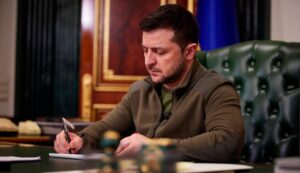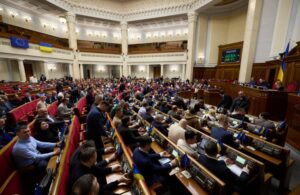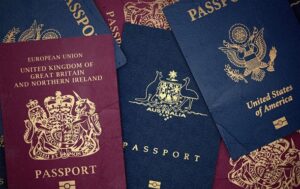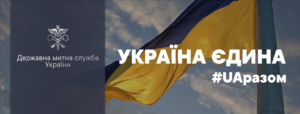
On Wednesday, President of Ukraine Volodymyr Zelenskyy signed a law on taxation of remuneration for gig contracts of Diia.City residents (draft law No. 9319) with an amendment to bring new tax rules (draft law No. 11416d) into force for individual entrepreneurs and legal entities on a single tax from January 1, 2025, said Danylo Hetmantsev, chairman of the parliamentary committee on taxation and customs policy.
“Draft Law 9319 has been signed. The increase for individual entrepreneurs comes into force on January 1. Everything is as promised,” he wrote in his telegram channel.
His deputy Yaroslav Zheleznyak noted that the law had been awaiting the president’s signature for 17 days.
As reported, on November 28, the President of Ukraine signed Law 4015-IX (Bill No. 11416-d) on amendments to the Tax Code regarding the peculiarities of taxation during martial law. The document envisages an increase in the military tax from 1.5% to 5% starting from October 1 this year, a 50% increase in the bank profit tax in 2024, and an increase in a number of other taxes and fees.

The Committee on Legal Policy recommends that the Verkhovna Rada adopt the draft law (No. 9235) on certain issues of disclosure of banking secrecy and measures to establish custody of the property of a missing person, the press service of the Ukrainian parliament’s apparatus reports.
The draft law proposes to amend the Civil Code and the laws “On Notaries”, “On Banks and Banking” and “On the Legal Status of Persons Missing in Special Circumstances”.
The draft law, in particular, defines the procedure for notaries to establish guardianship over the property of an individual who has been declared missing or a person who has gone missing under special circumstances. The draft law expands the list of persons to whom banks may disclose information constituting bank secrecy. In particular, it provides for its disclosure at the request of notaries to perform a notarial act to take measures to establish guardianship over the property of an individual who has been declared missing or a person who has gone missing under special circumstances.
The adoption of the draft law will allow family members of an individual who has been declared missing or missing under special circumstances to receive a notarized certificate of guardianship over the property of such persons. The law will also ensure the protection of the rights and interests of Ukraine in foreign jurisdictions in cases related to compensation for damage caused as a result of an international armed conflict in the country.
On May 23, the Verkhovna Rada adopted in the first reading a draft law amending certain laws on certain issues of disclosure of banking secrecy.

President of Ukraine Volodymyr Zelenskyy has signed the European integration law No. 3928-IX “On Grapes, Wine and Viticulture Products,” the press service of the Verkhovna Rada Committee on Agrarian and Land Policy reports.
According to the report, the law was adopted to bring the norms of sectoral legislation in line with the requirements of international rules for the production of viticulture and winemaking products, as well as to implement the provisions of the European Union’s regulations on viticulture and winemaking, oenological practices, production of flavored wine products, use and protection of geographical indications of wines, flavored wine products, and control in this area.
The document provides for the introduction in Ukraine of requirements for the production and circulation of wines, viticulture and winemaking products, and flavored wine products with geographical indications similar to current rules in the EU.
In addition, the law provides for the definition of a mechanism for the protection of geographical indications in Ukraine, the introduction of new terms and definitions in accordance with the categories of European legislation, and the implementation of the rule on labeling and presentation of wine products.
The document establishes the principles for conducting inspections of wine production from the vineyard to the final product, defines controlling institutions and their powers, and specifies sanctions for violations of the requirements established by law.
Ukraine will create a unified state information system, the Viticulture and Winemaking Register, and provide for the possibility of state support for viticulture and winemaking.
It is expected that the law will help provide citizens with high-quality products produced in accordance with international rules with special properties due to the natural conditions of the territory of origin. New jobs and favorable conditions for the development of business entities of all forms of ownership will be created in rural areas.
The law will come into force on January 1, 2026.

A revised draft law on tax increases during wartime (No. 11416-d) was registered in the Verkhovna Rada on Friday, the parliament’s website reports.
The text of the draft law on amendments to the Tax Code of Ukraine regarding the peculiarities of taxation during martial law is not yet available on the website.
The draft law is authored by MPs Danylo Hetmantsev and Andriy Motovylovets (Servant of the People faction) and Oleksandr Lukashev (Restoration of Ukraine parliamentary group).
As reported, the Parliamentary Committee on Finance, Taxation and Customs Policy recommended that the Verkhovna Rada adopt as a basis the revised draft law on raising tax rates.
According to Committee Chairman Hetmantsev, the draft law provides for an increase in the military tax rate from 1.5% to 5%, setting the military tax at 1% of income for individual entrepreneurs (IEs) for single tax payers of group III and at 10% of the minimum wage for single tax payers of groups I, II and IV.
LAW, PARLIAMENT, TAX

The Parliamentary Committee on Human Rights, De-occupation and Reintegration of the Temporarily Occupied Territories of Ukraine, National Minorities and Interethnic Relations recommends that the Verkhovna Rada adopt in the first reading the presidential draft law on multiple citizenship (No. 11469).
According to the press service of the Verkhovna Rada’s apparatus, this decision was made at a meeting of the committee on Tuesday.
As previously reported, President of Ukraine Volodymyr Zelenskyy submitted draft law No. 11469 “On Amendments to Certain Laws of Ukraine on Ensuring the Exercise of the Right to Acquire and Retain Ukrainian Citizenship” to the Verkhovna Rada.
According to the explanatory note to the draft law, the goals and objectives of the draft law are to update the legal regulation of Ukrainian citizenship, taking into account the need to ensure national security and national interests of Ukraine.
The draft law also simplifies the procedure for acquiring Ukrainian citizenship and improves the regulation of the legal status of foreigners and stateless persons who, in accordance with the procedure established by the legislation of Ukraine, are performing/have performed military service under contract in the Armed Forces of Ukraine, the State Special Transport Service, the National Guard of Ukraine or are one of the spouses of such a person or a child of such a person.
It is noted that the adoption of this draft law will expand the opportunities for certain categories of foreigners and stateless persons to acquire Ukrainian citizenship. At the same time, multiple citizenship will not be introduced for people with Russian citizenship or citizens of states that do not recognize the territorial integrity and sovereignty of Ukraine.

The Laws of Ukraine No. 3853-IX and No. 3854-IX of 16.07.2024, from 00:00 hrs. July 27, which provide for the introduction of exemption from duty and VAT on imports into Ukraine: power generating equipment, equipment for wind and solar generation, batteries (except for low capacity batteries), reports the State Customs Service of Ukraine on Friday.
The Service separately draws attention to the fact that such important goods for the population as: electric generators, inverters, lithium-ion batteries and charging stations on their basis, as well as solar panels for repair and/or replacement from damage and expansion of the capacity of existing solar power plants fall under preferential import to Ukraine.
Also in the department emphasize that the list of goods that are exempt from customs duties on imports includes equipment for the manufacture of means of countering technical intelligence and/or repair of mechanized demining machines, and such defense equipment as means of radio-electronic means of detection and countering unmanned aerial vehicles.
“The amendments provide for the period of martial law in Ukraine exemption from customs duties for goods imported for energy security, including those transported (forwarded) to the customs territory of Ukraine in international mail and express shipments, for free circulation and classified under the following codes according to the UKT FEA: 8406 (except 8406 10 00 00), 8410 (only hydraulic turbines and their parts), 8483 40 21 00, 8502 20 40 90, 8502 20 60 90, 8502 20 80 90, 8411 (except turboprop and turbojet engines and their parts), 8501 64 00 00 00 00, 8504 40 84 00 (except inverter welding machines), 8504 40 88 00 00 (except inverter welding machines), 8504 40 90 00 00 (except inverter welding machines), 8507 60 00 00 (except energy storage units of less than 300 watts AC and/or DC and individual lithium-ion cells of less than 200 Ah capacity), 8541 43 00 00 00, 8537 (except for 8537 10 98 10), 8503 00 99 00 (only for wind power electric generator sets), components for the organization of own production and repair in Ukraine of mechanized demining machines, classified in commodity positions 8427, 8430, 8479 under the UKT FEA, as well as for the manufacture by enterprises of Ukraine active means of countering technical intelligence, classified in commodity positions 8517, 8525, 8543 under the UKT FEA“, – specified in the State Customs Service”, – specified in the State Customs Service.